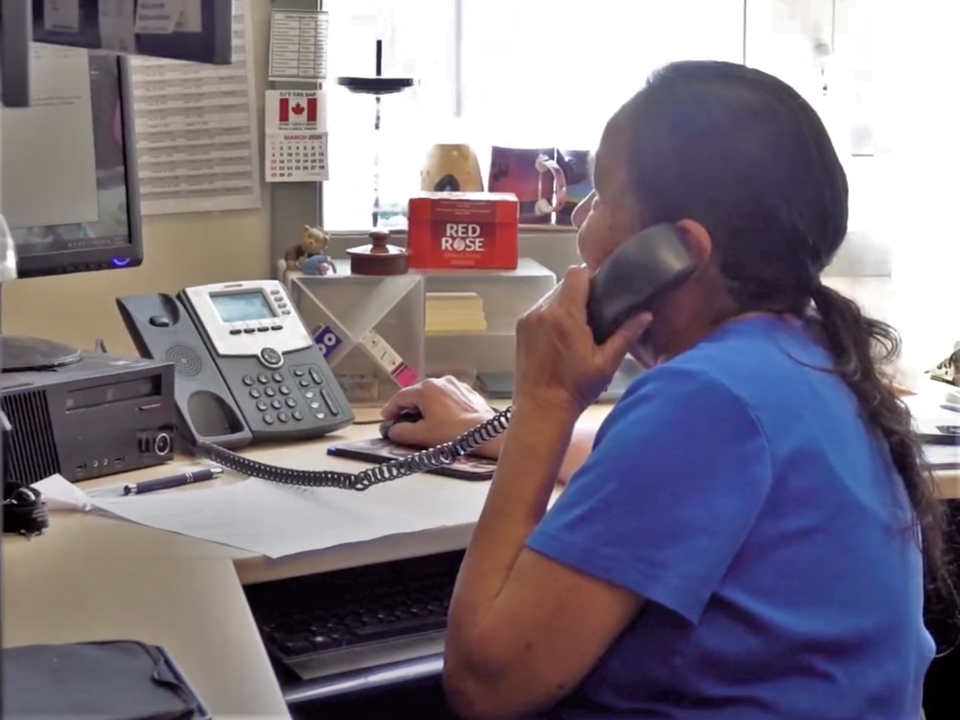THUNDER BAY – It’s more important than ever to maintain connection to traditional languages for foster children and families during the disruption of COVID-19, according to Tikinagan Child and Family Services.
“Some of our foster parents prefer to speak in their Native language, and with community visits limited, we wanted to be able to meet their needs during a challenging time,” says Thelma Morris, the agency's executive director.
That prompted the community-based child services agency, which serves 30 First Nations, to develop a foster parent hotline offered in Oji-Cree and English. It was one of the first supports put in place in response to public health restrictions, allowing families to access services and information even when a local worker isn't available.
The effort is just one expression of Tikinagan’s focus on language, one of the organization’s nine core values.
All Tikinagan foster homes are Indigenous, and in many, the Indigenous language is the primary one used in the home, Morris said. About three in four families speak either Ojibway or Oji-Cree, she estimates.
That’s no accident – the agency’s service model emphasizes nurturing children within their communities and protecting connections to family and culture.
“When we’re able to keep children in the same community and connected to their families, traditions and culture, including language, are maintained,” Morris says.
As a children’s aid organization, Tikinagan has a key role to play in averting the loss of traditional languages, Morris says.
“In our communities, mostly everyone can understand their community’s first language,” she explains. “However, our younger generation, specifically those under the age of 30, are losing it. We’re working toward empowering our families and communities to help preserve their languages.”
Those efforts start with the agency’s staff, more than 170 of whom understand, read, and/or write Oji-Cree or Ojibway, allowing it to run services like the parent hotline in-house.
Tikinagan offers incentives to staff who speak or write Oji-Cree or Ojibway, as well as educational opportunities to pursue language studies.
Call volumes for the hotline have been lower than expected, a fact Morris puts down to strong connections with local workers. While it's often not in person, workers have actually connected more often with families during the pandemic.
"Many of our communities prefer to speak directly to our Tikinagan workers based in our community and will be familiar with their language experience," Morris says.
The organization strives to communicate with children, families, and communities using both traditional languages in written and verbal communication and promotes the use of the languages with children in care.
For children living in an urban setting outside of their First Nation, the organization looks for alternatives to support their connection with culture, including language classes and other programming.
Ojibway and Oji-Cree are emphasized in many of Tikinagan’s publications, including its website, social media pages, newsletter, and annual report.
“We’re always looking for more ways to incorporate this in our work to underline how important it is to maintain this aspect of our communities’ culture,” Morris says.



